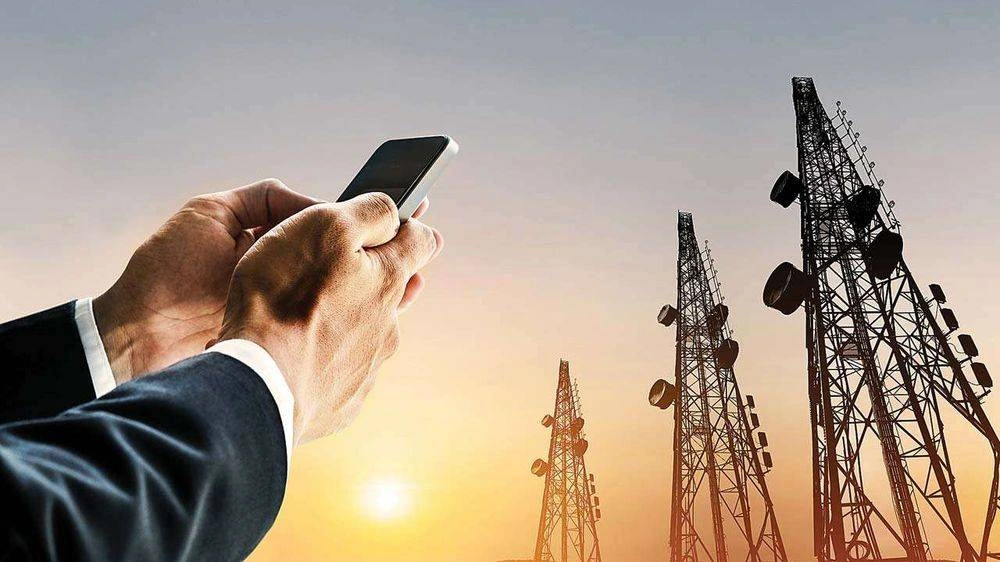KABUL, Afghanistan — For nearly two days last week, Afghanistan’s internet and phone networks went dark, leaving millions of citizens cut off from the outside world and sparking global concern.
The unprecedented blackout highlighted both the Taliban’s capacity to control communications and the limits of authoritarian power in an increasingly connected society.
On Monday evening, telecom providers across Afghanistan halted services, abruptly disconnecting the country’s estimated 43 million residents from the internet and cellular networks.
Bank operations froze, businesses paused, and flights to and from Kabul and other major airports were canceled, leaving both residents and the international community scrambling for information.
The sudden silence was terrifying, said Hewad Watander, a Kabul based journalist using a pen name to avoid Taliban scrutiny. “People appeared as if their spirits had left their bodies. Any sense of hope seemed to have completely vanished.”
Officials immediately attributed the shutdown to orders from the Taliban, who have tightly restricted personal freedoms since seizing power in 2021.
A Taliban governor in northern Balkh province, Haji Zaid, said in a previous regional blackout that connectivity cuts were intended to prevent immoral activities, with an alternative system to be established for essential services. No explanation was given for the nationwide shutdown this week.
Internet blackout disrupts daily life
Doug Madory, director of internet analysis at Kentik, a network monitoring company, observed the collapse in real time from the United States. It was just a wholesale disconnection, he said. “All connectivity fell off a cliff within an hour.”
NetBlocks, an internet watchdog, confirmed the blackout affected millions nationwide. Social media platforms, including Facebook, Instagram, X, and TikTok, went silent, while international and local phone calls failed to connect. Afghans abroad spent sleepless nights trying to reach relatives back home.
Fatima Yousufi, a former Afghanistan national soccer team player living in Australia, described the anxiety as she tried to reach her aunt, a single mother relying on remittances. “We won’t know how she’s doing, or if she has enough food. The uncertainty was unbearable,” Yousufi said.
For many Afghan women and girls, internet access has become a vital means to pursue education and maintain social connections despite Taliban restrictions.
Mati Amin, co-founder of SOLAx, an organization that provides online lessons via WhatsApp, reported a sharp decline in educational activity during the blackout. “It’s clear that not a single province was unaffected,” he said.
The blackout also dealt a severe blow to Afghanistan’s fragile economy. Banking transactions were suspended, online payments failed, and businesses struggled to communicate with suppliers or customers.
Abdul Hamid, a Kabul money exchanger, said he spent hours navigating the city just to verify currency rates. “Without the internet or phone service, daily business becomes impossible,” he said.
Cross border trade with Pakistan also suffered. Sabir Shah, a fruit dealer based in Peshawar, said that shipments of grapes, pomegranates, and apples from Afghanistan stalled due to payment and communication disruptions.
The Afghan government needs to understand that the internet and telephone are not luxuries. They are necessities of life, he said.
Experts suggest that the blackout demonstrates both the Taliban’s ability to impose temporary control and the limitations of such measures in the digital age.
Tom Worthington, a computing specialist at the Australian National University, said circumventing a shutdown could be risky for ordinary citizens but highlighted the growing reliance on satellite technologies like Starlink.
The Taliban may have intended to filter immoral content or reduce external influence, Worthington said. “But in a country where the population has grown up with constant connectivity, such measures are difficult to enforce long term.”
Richard Bennett, the United Nations’ special rapporteur for Afghanistan, warned that connectivity disruptions “may sink the fragile economy with massive human rights implications,” echoing concerns from Amnesty International and Human Rights Watch.
The return of services on Wednesday brought relief but also frustration. Samira, a 19-year-old student in Kabul, described the jubilation of classmates as they regained access to phones and online lessons.
Some girls had been carrying their phones in their bags just to turn them on the moment the network returned, she said. Fawzia Rahimi, a 52 year old housewife, said reconnecting with her daughters in the United States brought immense relief.
Speaking to my family is the only way to keep my days happy, she said. Yet behind the relief lingered anger that access to basic communication could be so easily stripped away.
For artists and educators like Nigin, the blackout prompted urgent efforts to maintain contact with students. “Seeing the pale, frightened faces of my friends and students filled me with rage. I made a promise to myself either death or hope,” she said.
The incident underscores a critical point: in a country where the internet is no longer a luxury but a lifeline, even authoritarian measures have limits.
Afghan society, including younger generations and even some Taliban supporters, has become accustomed to constant digital connectivity.
As Afghan citizens continue to navigate life under Taliban rule, analysts caution that attempts to suppress the internet may provoke further resistance or reliance on alternative technologies like satellite internet. The blackout also serves as a stark reminder of the intersection between modern infrastructure and human rights.
Afghanistan’s two day internet and phone shutdown illustrates both the Taliban’s control over the country’s infrastructure and the resilience of its citizens, who have integrated connectivity into everyday life.
While the regime can temporarily sever digital communication, the episode demonstrates that the modern Afghan population cannot be fully cut off from the world.
The blackout’s economic, social, and educational impacts reveal that in today’s interconnected era, access to the internet is essential for survival, communication, and civic engagement, reinforcing its status as a critical tool for both individual and national well being.
